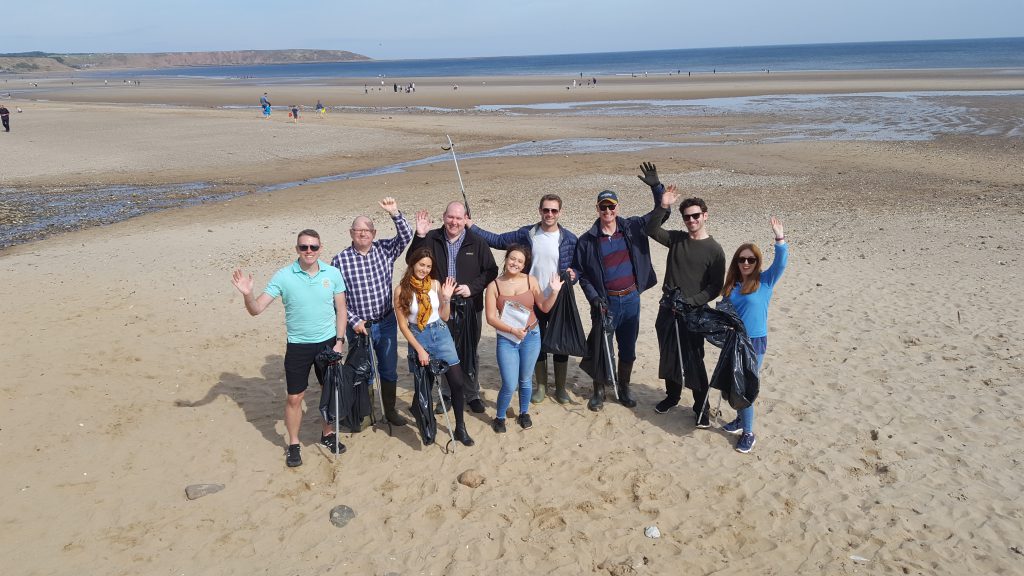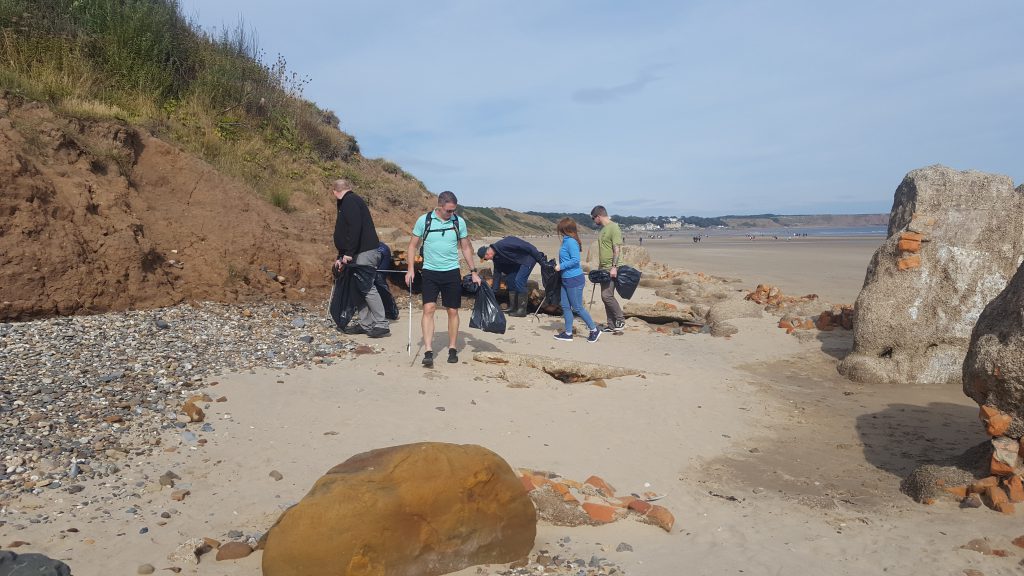 Cromwell Polythene annually participates in beach cleaning and litter surveying activity on behalf of the Great British Beach Clean, and to mark Recycle Week (23 September – 29 September).
Cromwell Polythene annually participates in beach cleaning and litter surveying activity on behalf of the Great British Beach Clean, and to mark Recycle Week (23 September – 29 September).
A team of ten volunteers from Cromwell Polythene, which supplies products for the capture and containment of recyclables took to their local beach at Filey on the North Yorkshire coast on 14 September. The aim of their annual litter pick is to champion sustainability and community recycling best practice.
In total 346 items were collected, using sustainable litter clearance hand tools from Helping Hand Environmental. The litter, which had an approximate weight of 16kg, came from two beach sections of 500 metres each . These included the following levels and types of rubbish:
- 125 plastic/polythene items including bottles, caps, straws and pieces of plastic bag (compared to 229 pieces during last year’s survey along the same beach radius)
- 69 rubber items including bits of balloon, and pieces of dog balls
- 24 paper/cardboard items including cigarette packets, tissues, labels and a receipt
- 12 wood items including cork, lolly sticks and chip forks
- 48 metal items including metal bottle caps, an aluminium can, foil wrappers, a knife and fishing wire
- 12 pieces of cloth (nylon, wool, cotton and canvas) including string, fishing netting, a sock, a glove and the remains of a tent!
- 12 glass items
- 1 piece of pottery
- 3 pieces of food waste
- 11 sanitary items including wet wipes
- 29 cigarette stubs (which contain tiny particles of plastic)
 Levels of litter were recorded across the same predefined items as last year’s survey, covering eleven main types: plastic / polystyrene, rubber, cloth, paper and cardboard, wood (machined), metal, glass, pottery/ceramics, sanitary waste, food and miscellaneous waste.
Levels of litter were recorded across the same predefined items as last year’s survey, covering eleven main types: plastic / polystyrene, rubber, cloth, paper and cardboard, wood (machined), metal, glass, pottery/ceramics, sanitary waste, food and miscellaneous waste.
James Lee, managing director of Cromwell Polythene said: “We were pleased to see that the scale of littering has reduced compared to previous years’ analyses. It’s very encouraging that people are showing concern for the environment and the impacts that our actions have. We all want to see the recovery, reuse and recycling of every type of packaging and it is vital that we work together to find solutions to protect our environment, combat climate change, keep products in use for as long as possible, and prevent leakage of valuable resources from the circular economy.”
The data collected at Great British Beach Clean events is shared with the International Coastal Clean-up (ICC), contributing to a worldwide report on litter levels. MCS also analyses the data and uses the results to raise awareness of pollution and tackle it at source in the UK.
Now in its 17th year, Recycle Week is a celebration of recycling, organised by WRAP under the Recycle Now brand. The aim of the week is to encourage the public to recycle more, by demonstrating the benefits of recycling items from all around the home. Sustainability is firmly on the national agenda and the public is looking to organisations to help solve major environmental issues. That makes Recycle Week a greater opportunity than ever to change people’s recycling behaviours and celebrate sustainable achievements.
For more information about Recycle Week visit http://www.wrap.org.uk/content/recycle-week-2019
For more information about the annual Great British Beach Clean visit https://www.mcsuk.org/beachwatch/greatbritishbeachclean
Read our blog for further information on litter and events.